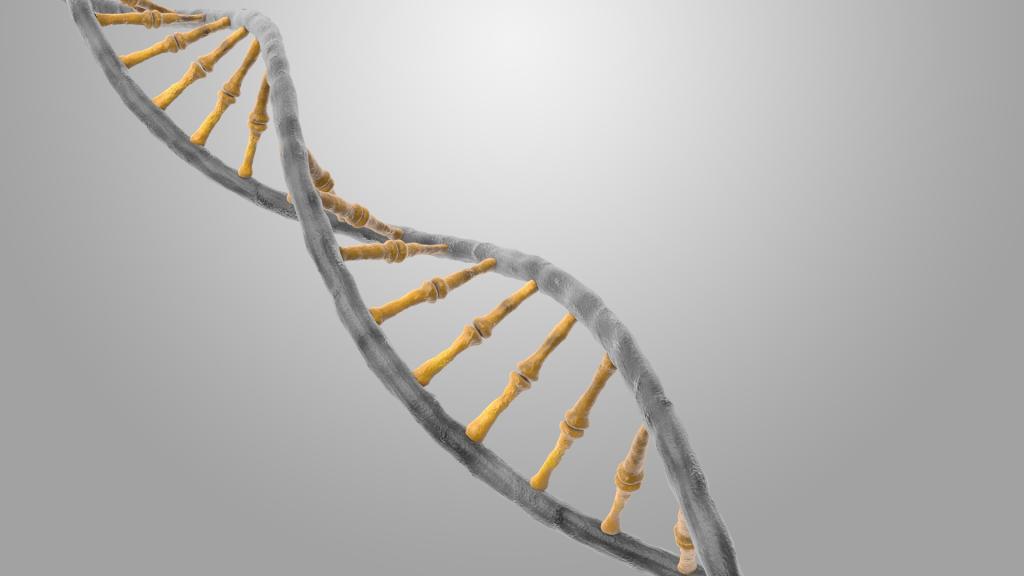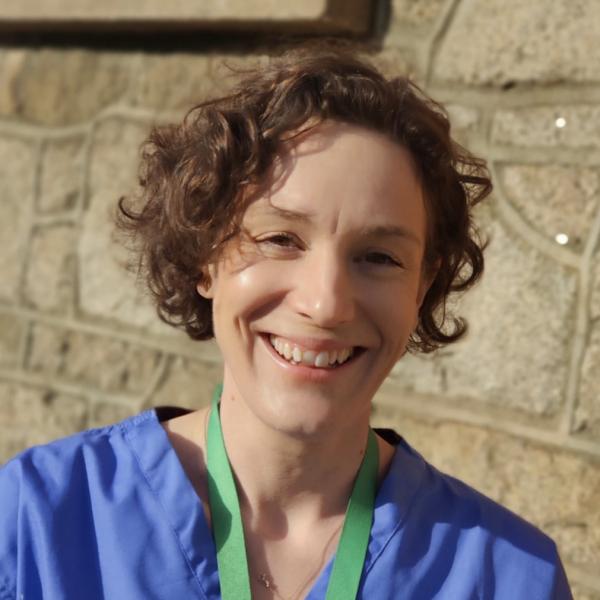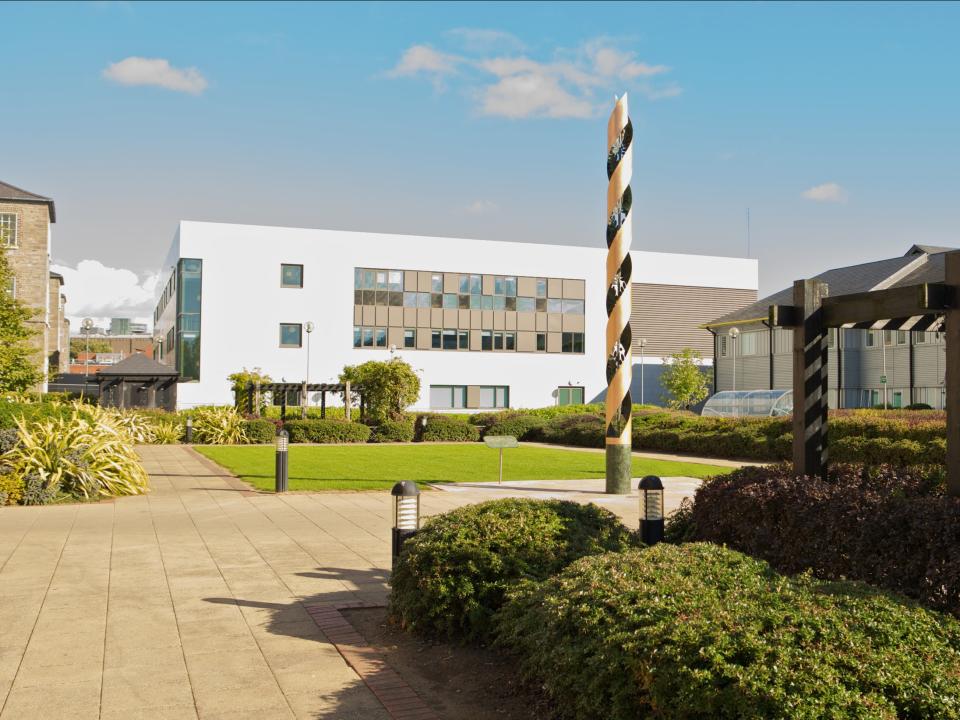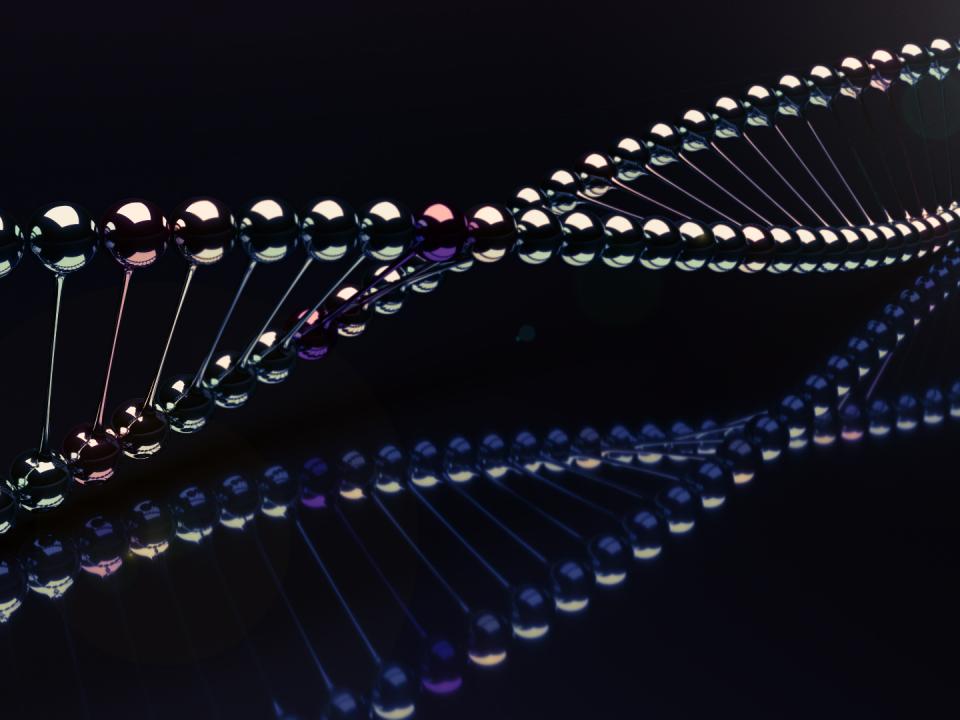
Clinician Research Leadership Award: Prof Karen Cadoo
“Although it’s scary to find out that you have a genetic cancer risk, it is empowering because if you can do something about that risk and prevent the cancer or catch it early that is so valuable.”

For some people their risk of cancer may be higher due to genes that are passed down through their family.
Prof Karen Cadoo of St James’s Hospital has dedicated her research to helping people understand this risk and the steps they can take to reduce this, or catch the signs of cancer early.
It is estimated that somewhere between 5-10% of cancer cases are linked to faults in the genes or ‘mutations’ that people inherit, and Prof Cadoo’s vision is to give more people better access to the kinds of insights that can indicate their level of risk and what should be done in relation to it.
“If we can improve information, if we can improve acceptability and accessibility so that doing genetic testing is more routine, as in the way people do other things in their life, then that would be brilliant,” says Prof Cadoo, a recipient of the Irish Cancer Society’s Clinician Research Leadership Award which will allow her to focus more of her time on forward-looking cancer research projects in this area.
Genetic screening
When talking to Prof Cadoo about the work that she will undertake through the award, a key word that comes through is ‘ambition’.
She references a recent report from the Irish Cancer Society, in association with researchers from University College Cork, in which patients express their frustrations at the availability of services in Ireland for determining something so crucial as their genetic risk of developing cancer, and access to counselling to help explain what this means.

Ireland currently lags behind other countries according to Prof Cadoo, like the UK whose very effective cancer genetic screening system she feels we can realistically strive towards here.
The ovarian cancer specialist is conscious that this will not be possible in one leap - important foundations must first be put in place to enable this grand ambition to be realised.
For a start, it’s a big help that her base at St James’s Hospital is already a national referral centre for adults with a genetic risk of cancer, providing services to over 2,000 people from all around the country who match this criteria.
Prof Cadoo points to a very useful Covid-19 registry that the hospital has developed as evidence that a similar registry for cancer genetic risk is possible.
‘Biobanking’
Using available expertise on biobanking - the storing of patients’ biological samples for future investigation - at the site will help to ensure that those involved can benefit from scientific breakthroughs in genetic testing in years to come, she says.
“Things change into the future. If you have samples from people who you know have mutations or those who don’t have mutations but have a risk in their family, then maybe over time you can progress things; for instance when new genetic discoveries are made internationally.
“For example, it can be a case that someone comes in with a family history of colon cancer and we don’t find anything. It’s not necessarily that there is no genetic risk present, we just mightn’t have the means at our disposal to find it at that point in time… but technology advances in the future may be able to provide the answer, so if you have banked samples for research there’s a lot of great things you can do with it.”
Prof Cadoo is accepting of the fact that registries and biobanks do not sound terribly exciting compared to new breakthroughs in treatments, for instance, but such projects are essential to creating the intelligence that can improve cancer survival and save lives in future in her opinion.
At the moment we don’t have the fundamentals in place to get to the level of cancer genetic research we would like to be at in Ireland, and that is something I want to help address.
Registries and biobanks aren’t that exciting to people, but having data and samples is so critical to enable further discoveries and improvements to be made. This will help build a base to ensure more cancers are prevented, as it goes without saying that it would be better for people never to have had the cancer in the first place.
Rapid access clinic
Alongside the registry and biobank at St James’s, Prof Cadoo wants to pilot a range of initiatives including a rapid access clinic for those concerned about their genetic risk of cancer, and a nurse phone line that people can get in touch with to ask questions, with a view to proving their value on a national scale in future.
“People’s heads can be spinning when they discover a genetic risk, so they may not ask their doctor about questions that may eventually become apparent to them. If they could pick up the phone and ask all their questions then hopefully that will be an improvement.
“Even the people who won’t necessarily use such a resource might benefit from the fact that they know it exists, that it’s an option that’s there for them as a kind of safety net,” says Prof Cadoo, who feels that making such services available for patients can help empower them to navigate their own way through their care and to look after their health.
On the importance of the Irish Cancer Society’s Clinician Research Leadership Award, Prof Cadoo says it will provide her with much-needed “headspace” to take her research to the next level and help make a difference for patients.

“For these things we’re talking about you need some thinking time and headspace, and that’s something we don’t have at all as cancer doctors, so being able to strategise and think forward is invaluable.
“It’s so hard to move research forward when you don’t have time with the demands of clinical work, so to have that time that this award guarantees and to be able to get these projects off the ground and get that all-important data, this will all push towards better resourcing and improvements in our cancer genetic services over time.”
The work of Irish Cancer Society funded researchers is made possible through the kind support of the public.
To help support our cancer research please visit www.Cancer.ie/Donate
Contact the Irish Cancer Society Support Line
If you have worries or concerns about cancer, you can speak confidentially to an Irish Cancer Society Cancer Nurse through the Freephone Support Line on 1800 200 700.
Monday to Friday, 9.00am - 5.00pm
